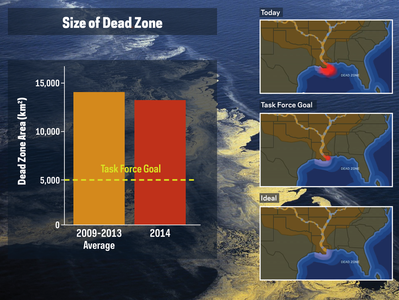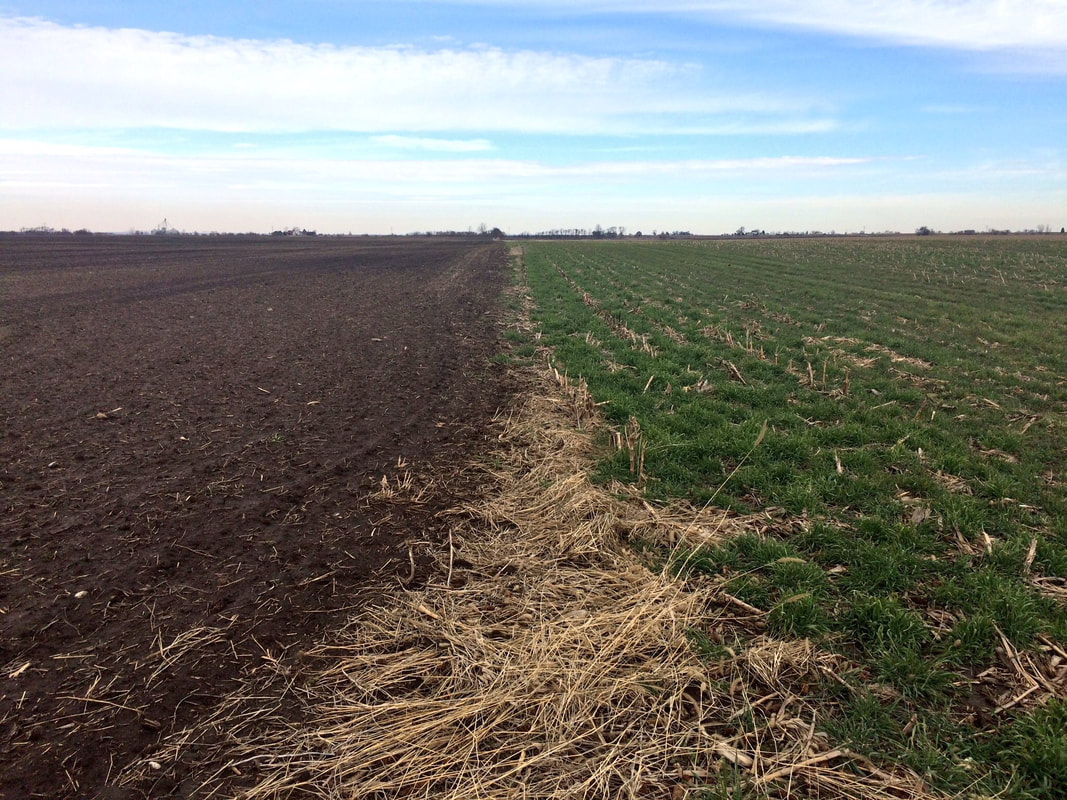Why is this project needed?
|
Nutrient pollution is one of America’s most challenging environmental problems, costing the nation billions each year. Synthetic fertilizers are essential for modern agriculture but runoff of nitrogen (N), phosphorus (P), and associated sediments degrades both local and downstream
water quality by:
As well as causing serious problems for our waters, runoff from agricultural fields degrades soils that must then be replenished with fertilizer additions. This completes a vicious circle that we need to break. |
The Indiana Watershed Initiative RCPP project therefore addresses three key natural
resource concerns: water quality, soil health, and at-risk aquatic species habitat
resource concerns: water quality, soil health, and at-risk aquatic species habitat
There are various different "best management practice" options available to those seeking to address these problems but there is not always a foundation of solid scientific evidence to prove how well these practices work at different scales. Another barrier to implementing best management practices is that they often place onerous requirements on farmers, such as extra costs or loss of productive land. If farmers are going to adopt new practices it is reasonable for them to expect to have proof that it will be worthwhile for them as well as for the environment. Our goal is to help farmers implement conservation practices that protect the environment by reducing nutrient runoff while maintaining productive and profitable agriculture operations.
|
Winter cover crops and the two-stage drainage ditch are two practical conservation options which have been emerging as best management practices that do make dollars and sense for farmers and landowners. Members of our team have worked on projects carrying out robust scientific monitoring of the separate impacts of both cover crops and the two-stage ditch, independent of each other and at the field and reach scales.
However, the Indiana Watershed Initiative project is unique and innovative because we are now monitoring the impact of pairing both cover crops and the two-stage ditch at the watershed-scale in two demonstration sites. Watershed-scale implementation in Indiana has never been achieved and linked to improved water quality and soil health. Our project is leading the way in demonstrating real-world performance of cover crops and the two-stage ditch while modeling how strong partnerships promote conservation success. |
Two-Stage DitchFind out about the first phase of two-stage ditch research which our current project builds on.
|
Winter Cover CropsSee how cover crops have been proved to benefit both soil and water quality.
|
Current ProjectLearn more about how we are pairing cover crops and the two-stage ditch to monitor their joint impact.
|


